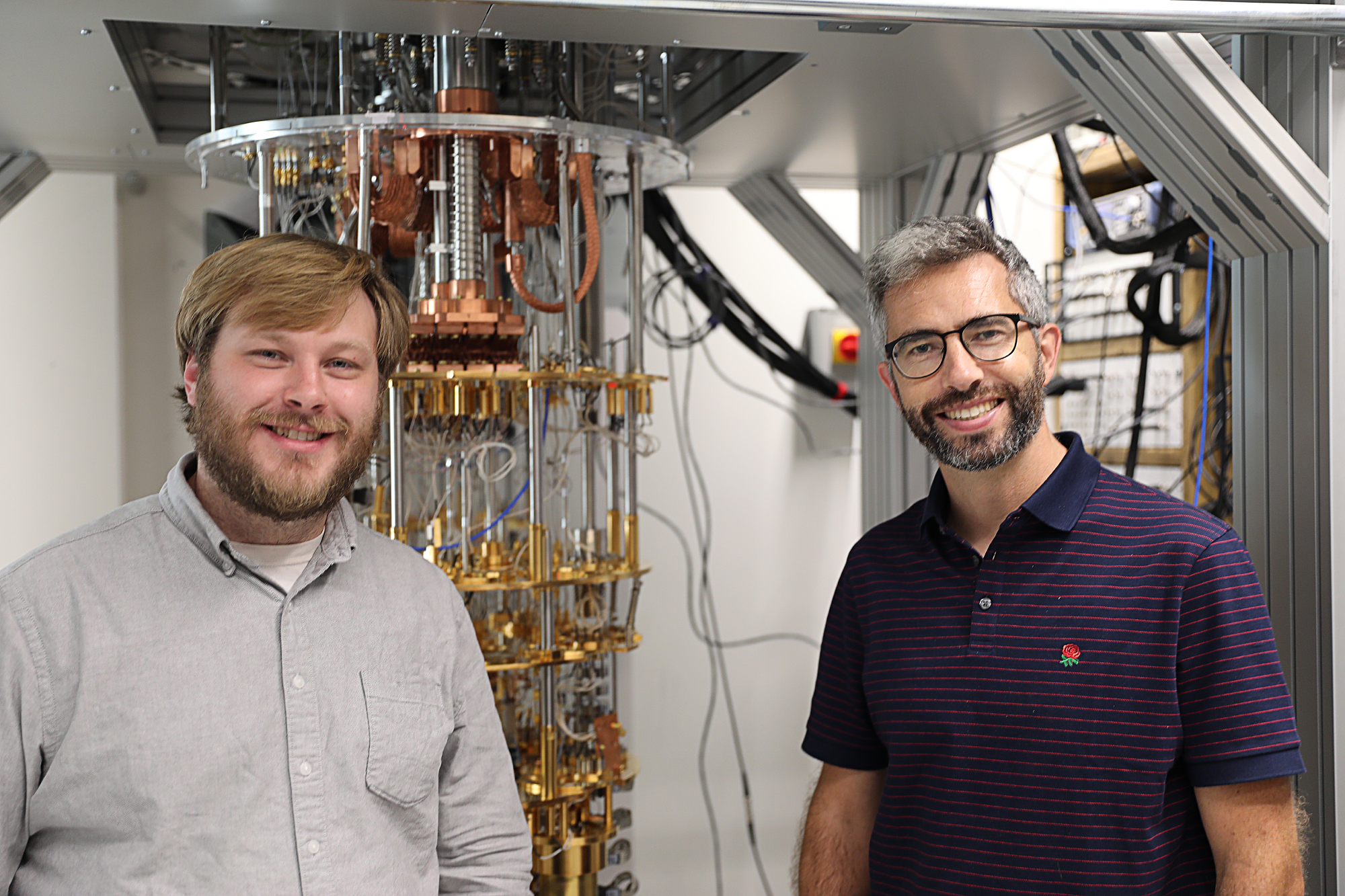Quantum Motion, a UK-based quantum computing scale-up founded by Professor John Morton, University College London (UCL), and Professor Simon Benjamin, University of Oxford, has signed a flagship academic partnership with the University of Pennsylvania, Philadelphia, US.
 Asst Prof Anthony Sigillito Uni of Penn (left) and Prof John Morton, CTO of Quantum Motion (right). Image Credit: Quantum Motion
Asst Prof Anthony Sigillito Uni of Penn (left) and Prof John Morton, CTO of Quantum Motion (right). Image Credit: Quantum Motion
Quantum Motion will provide researchers with access to its latest silicon qubit chips alongside significant funding to both support the work and expand the university’s quantum hardware testing facilities. This is Quantum Motion’s first university partnership in the US and will not only advance the company’s chip development but also enable top talent from the US to contribute to the company’s growth.
The University of Pennsylvania’s quantum hardware lab, led by Assistant Professor Anthony Sigillito, will test the fundamental limits of qubit control using Quantum Motion’s chips. Sigillito’s group brings exceptional technical expertise in developing new methods to encode and control electron spin qubits. For Quantum Motion, the partnership will help further its vision of developing scalable quantum computers using silicon.
The partnership’s exchange visits between Quantum Motion and the University of Pennsylvania will establish deeper ties and offer students and academics the opportunity to visit and work in the experimental facilities at the company’s headquarters in London. To enable routine experimental testing of Quantum Motion’s chips, the company will fund a postdoctoral scholar, a PhD student for three years and invest in a significant expansion of quantum hardware testing infrastructure at the university.
John Morton, CTO of Quantum Motion, said, “North London and Philadelphia pioneered computing in the 1940s with the development of Colossus and ENIAC, the world’s first electronic digital computers, so it is particularly exciting to be launching a partnership linking these historic locations for the development of a new generation of computers. Anthony Sigillito’s group is leading work to enable devices with improved qubit-to-qubit connectivity and new control approaches and we’re looking forward to working with him to develop a truly scalable quantum processor.”
Anthony Sigillito, Associate Professor, University of Pennsylvania said, “Quantum Motion is taking a systematic approach to understanding and overcoming the hard problems that must be tackled in order to build a long-term technology platform. Scalability is the key theme in my lab and it is clear to me that even in its early days, Quantum Motion has been assessing the prospects for scaling to larger systems. There is a tremendous amount of talent at Quantum Motion and I’m excited that my lab will be able to interact with the Quantum Motion team on a deep level.”
Quantum Motion has achieved a series of peer-reviewed and record-breaking milestones over the last two years that underline how silicon has the potential to be the fastest, most cost-effective and scalable way of producing the millions of qubits that are needed to create fully-functional, fault-tolerant quantum computers. Harnessing the existing knowledge, scalability, uniformity and manufacturing cost capabilities of the CMOS semiconductor technology used in most of today's silicon chips, the company has designed and validated integrated circuits capable of generating, routing and processing signals at deep cryogenic temperatures, operating down to a few tenths of a degree above absolute zero. Recent demonstrations, such as the mass characterisation of thousands of multiplexed quantum dots fabricated in a tier one foundry, have further underlined the company’s advantage.